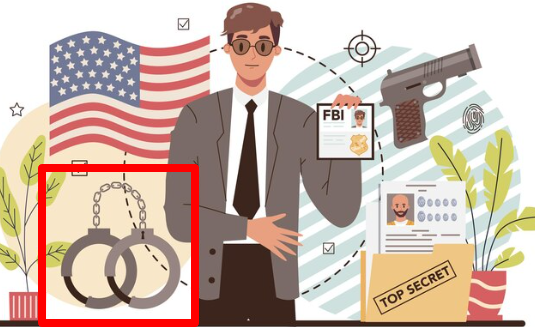An unexpected visa overstay can be a source of immense anxiety and uncertainty. Whether it was due to unforeseen circumstances or a simple mistake, the consequences can be serious. At Passage Immigration Law, we understand the stress you’re facing. This comprehensive guide will walk you through the potential penalties, your legal options, and the steps you can take to successfully resolve a U.S. visa overstay. Our goal is to provide clarity and a path forward.
What Happens If You Overstay Your Visa? The Concept of Unlawful Presence
When you overstay your visa, you begin to accrue what is known as unlawful presence. The severity of the consequences directly depends on how long you have been unlawfully present in the U.S.
- Less Than 180 Days: If you depart before reaching 180 days of unlawful presence, you may not face an automatic ban. However, future visa applications will likely be more difficult, as immigration officers may view you as a flight risk.
- More Than 180 Days (but less than one year): Accruing between 180 and 365 days of unlawful presence can trigger a three-year ban from re-entering the U.S.
- More Than One Year: Staying more than one year beyond your authorized period will likely result in a ten-year ban from returning to the U.S.
Unlock the Answers to Your Immigration Questions. Download our FREE Q&A Guide.
Is Overstaying a Visa a Crime?
This is a common concern. While overstaying is a serious immigration violation, it is typically treated as a civil matter rather than a criminal one. This means you will not face criminal charges. But you will be ineligible for several immigration benefits and may face deportation.
Penalties and Consequences of an Overstay

Beyond the automatic bans, an overstay can lead to significant long-term challenges:
- Future Visa Ineligibility: Overstaying demonstrates a disregard for immigration laws. This can make it very difficult to secure a new visa in the future.
- Deportation: If discovered by immigration authorities, an overstay can lead to removal proceedings.
- Difficulty with Future Travel: Your immigration record is electronically tracked. This information is shared with other government agencies and even airlines, making it very difficult to go “unseen.”
Key Solutions for a Visa Overstay
Depending on your specific situation, there may be a path to resolve your overstay. It is crucial to consult with an immigration attorney to determine your eligibility for these solutions:
1. Visa Overstay Forgiveness for Immediate Relatives of U.S. Citizens
If you are an immediate relative of a U.S. citizen (spouse, unmarried child under 21, or parent), you may be eligible for a special form of “forgiveness.” This allows you to apply for a green card through a process called Adjustment of Status without having to leave the country. This is a powerful exception to the general overstay rules and is a primary path for many to legalize their status.
- How it Works: You can file Form I-485, Application to Register Permanent Residence or Adjust Status, with USCIS from within the United States.
2. Applying for an Immigration Waiver
In some cases, if you have an overstay ban, you may be able to apply for a waiver to have the ban forgiven. The type of waiver depends on your circumstances:
- Form I-601 Waiver: This waiver is typically for individuals who are outside the U.S. and need to overcome a bar to admission, such as a three- or ten-year ban.
- Form I-601A Provisional Unlawful Presence Waiver: This waiver allows eligible individuals to remain in the U.S. while their waiver is being processed. If approved, they can then leave for their consular interview abroad with the assurance that they will not be barred from re-entry.
3. Overstay Due to Extraordinary Circumstances
In rare situations, an overstay can be attributed to acceptable reasons, such as:
- Medical Emergencies: A severe medical condition that made it physically impossible to travel.
- Natural Disasters or Civil Unrest: Travel restrictions from your home country due to unavoidable crises.
While these reasons do not automatically waive an overstay, they can be used to strengthen a waiver application and demonstrate that the overstay was involuntary.
Are you unsure which option is right for you? Navigating these complex legal pathways requires expert guidance. Contact Passage Immigration Law today for a personalized assessment of your case.
What if I Overstayed and Get Married?
This is a common question. If you overstay your visa and then marry a U.S. citizen, you are still likely eligible to adjust your status and get a green card. U.S. immigration law places a high value on family unity, and this often provides a path forward for spouses of citizens, even with an overstay.
However, if you marry someone who is not a U.S. citizen or lawful permanent resident, your situation is far more complicated, and you may face significant challenges.
How to Fix an Overstayed Visa: Your Next Steps
dResolving a visa overstay is a serious matter that requires a strategic approach. Here are the primary paths to consider:
- Adjustment of Status: If you are an immediate relative of a U.S. citizen, this is often the most direct route.
- Waiver Application: For those facing a re-entry ban, a waiver may be your only option.
- Seeking New Visa Abroad: This is a high-risk option that requires you to leave the U.S. and apply from your home country, likely needing a waiver first.
The right solution depends entirely on your unique circumstances.
Final Summary & Call to Action
Dealing with a visa overstay can be overwhelming, but you do not have to navigate it alone. The key is to understand your options—whether it’s seeking forgiveness as an immediate relative, applying for a waiver, or pursuing an adjustment of status. The best path forward is one tailored to your situation.
Our experienced team at Passage Immigration Law is dedicated to helping people like you find clarity and security. We will evaluate your case, explain your options in plain language, and guide you through every step of the process.
Don’t let a visa overstay define your future. Take the first step toward a resolution.
Disclaimer: This article offers general legal information, not legal advice. Do not rely upon this information without seeking legal counsel. If you need legal advice, you may contact us directly to speak with an attorney. We disclaim all liability with respect to actions taken based on any information presented. Every case is different, and outcomes will vary depending on the unique facts and legal issues of your case.







